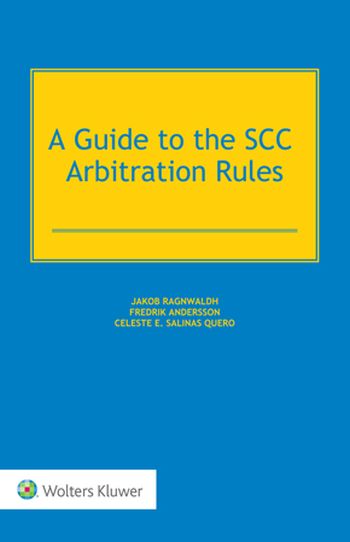
A Guide to the SCC Arbitration Rules serves as a commentary to the 2017 Arbitration Rules of the Arbitration Institute of the Stockholm Chamber of Commerce (SCC). SCC is one of the world’s leading arbitral institutions, registering about two hundred new cases each year, approximately half of them being international cases in commercial and investment treaty disputes. True to the SCC tradition of offering a cost-efficient and flexible procedure, the SCC’s current Arbitration Rules, which came into force in 2017, introduced important new mechanisms enhancing the efficiency of the proceedings. This guide to the SCC Arbitration Rules, the first and only available commentary in English, addresses the Rules and their Appendices article by article in the order in which they appear in the Rules.
What’s in this book:
The authors bring together their combined extensive experience of conducting SCC arbitrations as counsel, arbitrators and members of the SCC Board and Secretariat to provide thorough and user-friendly guidance on the SCC proceedings from start to finish, including the new features introduced in 2017 such as summary procedure, joinder and multiple-contract arbitrations, as well as the new Appendix addressing certain aspects specific to investment treaty arbitration. All the general issues such as appointment and removal of arbitrators, the proceedings before the arbitral tribunal, making of awards and decisions, are addressed, along with:
Focusing primarily on how the Arbitration Rules are applied in practice, this book should first be read as a practitioner’s guide. This book is sure to appeal to arbitrators, external counsel and party representatives who choose to adopt the SCC Arbitration Rules, whether they are based in Sweden or elsewhere. Practitioners will confidently approach any case under the SCC Arbitration Rules with full awareness of applicable rules of procedure and practice.